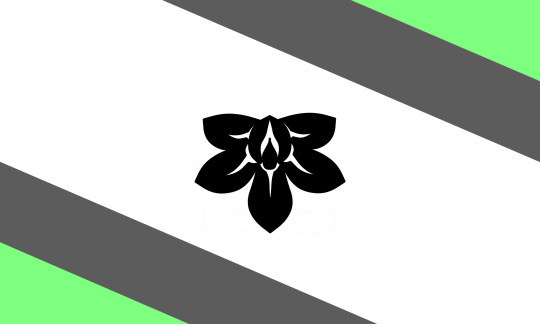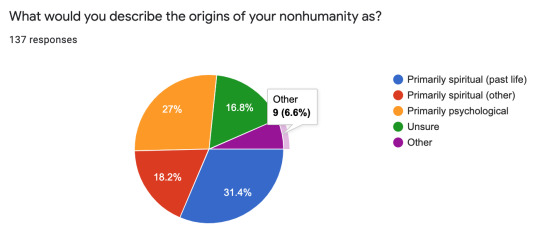Don't wanna be here? Send us removal request.
Text

blinkie id: the border is an almost black red, with bright red and crimson blinking dashes. the interior is a crimson with a slight dark to light ombre. the text is bright red and reads ‘this user is a demon. end id
199 notes
·
View notes
Text
While the context doesn’t need to refer to Hell or demons, reading stories with certain arcs and/or relationship dynamics give me this unique... hearthome-like feeling. As in, comfortable and fitting because of my kintype? I don’t know how else I can describe it.
I’ve never seen this being discussed before (nonhuman media threads tend to focus on nonhuman characters), so I wonder how common this experience is.
2 notes
·
View notes
Text
oof, the “use -kind instead of -kin for searches to avoid nonserious posts” thing definitely doesn’t work for demons lol
1 note
·
View note
Text
It’s okay if your kintype is weak. It’s okay if your kintype isn’t present every second of the day. It’s okay if you rarely (or never) shift. It’s okay to go through periods of doubt. It’s okay if your kintype goes through times of dormancy. It’s okay if you feel 90% human and 10% ‘kin. None of these things make you any less otherkin. You don’t have to live up to anyone’s expectations of how otherkinity should be.
311 notes
·
View notes
Text

Xenoallosexual: (of an individual) being asexual or ace-spec by typical/human standards but allosexual by the standards of another species
[xenoalloromantic]
#nonhuman#queer#oh I've thought about the possibility before#but I'm not entirely sure I'd be considered allosexual there either
120 notes
·
View notes
Note
Nonhuman culture is being scared to state you don't consider yourself "physically human" because you don't want to get mistaken for a p-shifter
66 notes
·
View notes
Text
I honestly find it a bit of a red herring to search for childhood memories to corroborate your current identity. Most kids played dog when they were young, most kids have found themselves fascinated by a certain animal, most kids have preferred one animal over another, etcetera, etcetera.
All those experiences can have affected or informed the person you are today, and they can be an important part of a full narrative, but they are not what make you a therian today. What makes you a therian is not something that happened years or decades ago. What makes your identity a solid part of you is what you experience right now.
All too often on therian forums I’ve seen introduction posts that go over past experiences which are largely irrelevant to your current questioning process. Your theriotype is what you are right now. The validity of your identity should not be judged based on the number of times you pretended to be it in kindergarten. Your theriotype should be determined based on your current experiences.
Looking back on your childhood and trying to piece together how your identity formed should always be secondary to what you are going through right now. It pains me how many forums will treat childhood memories as ‘evidence’ that an identity is valid, or how they will even treat newcomers as downright suspicious or ‘fake’ if their identity is based solely on current feelings.
It’s also all too easy to draw lines between current identity and childhood experiences, and to craft a subjective narrative that objectively isn’t really there. Like, I could very easily create connection between obsessively watching the animated Robin Hood movie → Pretending to be a carnivore → Looking up furry art as a preteen → Stumbling onto anthro hyenas → Subconsciously tying anthro hyenas to my identity. But creating these narratives feels so artificial and doesn’t actually do anything to describe my current identity.
Feeling pressured into validating your identity with childhood memories is a red herring, distracting you from the current experiences that your identity is actually based on.
94 notes
·
View notes
Text
Reminder that you can have the exact same experiences from psychology-based kintypes as you can from reincarnation-based kintypes. Often the only significant distinction between the two is the belief around their cause, while their actual presentation is identical. You can learn from psychological kintypes. You can have exotrauma from psychological kintypes. You can have memories from psychological kintypes. You can be aware of full and complex lives that distinctly feel like they happened in the past and which you believe are based on something psychological rather than something spiritual.
146 notes
·
View notes
Text
Noemata: Background, definition, and use
noema (plural noemata) - noun From Ancient Greek νόημα (nóēma, “concept”, “idea”, “perception”, “thought”).
1. (philosophy) The perceived as it is perceived 2. (philosophy) That which is perceived in the noesis/noema duality 3. (rhetoric) An obscure speech or a speech that only yields meaning upon detailed reflection⁽¹⁾ 4. (otherkin community slang) Knowledge about oneself, one’s kintype, or the life of one’s kintype
———————————–
Almost from the moment I joined the community I lacked a word to describe the distinct images, knowledge, and ‘memories’ that would pop into my head in relation to my psychological kintypes. I was (and still am) very adamant that these kintypes were not past lives, and yet I had many experiences that were similar enough that I, at the time, begrudgingly referred to them as my “kin memories”. Upon sharing my reluctance around using this terminology, I found that many others – both psychological, spiritual, both, and neither – were experiencing the same lexical gap. So when I set out to find a word to bridge that gap, my intentions were to make it as broad and inclusive as physically possible.
It took a day or two of intense googling, before I found the word ‘noema’, which is a very rare word in daily speech, and is almost exclusively reserved for one specific branch of philosophy. It has several overlapping definitions (the three main ones listed above, followed by the community’s use), but the one that particularly caught my attention was: “The perceived as it is perceived.”
Now, fair warning, I took a philosophy class in high school that I haven’t been able to shut up about since, so when I saw that rather cryptic definition, it was of course love at first sight. How I’ve come to interpret “the perceived as perceived” after reading a some analyses of Husserl’s philosophy, on which it is based, is as a subjective truth - a noema is something that is real, not because we can prove its existence by scientific measurements, but which is simply real because a person experiences it as such. When discussing noemata in the context of memory-like experiences in the otherkin community, it is thus irrelevant if they’re “real” in any objective way, and the only thing that matters is that the individual experiences them as real.
———————————–
To define is to limit, so with the purpose of the word in mind (to be useful for everyone who felt the lexical gap) I had to be very careful with my phrasing. In my very first attempt at a definition I described a noema as “something in between a memory and an intuition, knowledge that is inherent but has been forgotten/has to be recalled.”⁽²⁾ This is not a definition that I stand by now as I find it too limiting and too focused on memory-like noemata.
In my next post⁽³⁾ about the topic, I didn’t attempt to define it so much as clarify a few things: A noema is not a “kin memory with a psychological explanation”, nor does it have to have any of the qualia of a memory. Any knowledge that has been gained about one’s kintype can be called a noema, including detailed episodic memories and knowledge as simply as your kintype’s eye color or the layout of their house.
In my final attempt to define it, when prompted to because Kiera wanted to add it to their dictionary, I described it as “inherent knowledge you have about your kintype. This may include memories, things you experience as memories but likely aren’t, or general knowledge about your looks, life, habits, or surroundings. Noemata may have a psychological or spiritual basis, may be a mix of the two, or may have unknown origins.”⁽⁴⁾ This is a definition I stand by to this day, though it still prompts some further questions and discussions.
———————————–
For starters, why did I include the word 'inherent’ in that definition? It’s a word I’m very fond of, and you’ll often see it mentioned in my long-form writings. I use it to mean 'essential’, 'core’, and sometimes 'permanent’ or 'natural’/'instinctual’. In other words, for something to qualify as a noema it has to be ingrained with your kintype, one way or another - so things you only know because it was taught to you (for example, statistical facts about an animal species) would not count as noemata, but things you discovered on your own would. Though even here we run into grey areas, though, because if a piece of knowledge was revealed to you in, say, a dream, would that count as a teaching or a discovery? Or would knowledge you didn’t discover through introspection, but instead felt compelled to seek out and study, count? I can’t say, and I think it’s up to the individual to decide if they want to call something like that a noema or not.
Next, I feel it important to mention that the examples listed in that definition (“memories, things you experience as memories but likely aren’t, or general knowledge about your looks, life, habits, or surroundings”) are only examples. There are other ways to experience noemata, for example (again, only examples and not the be-all-end-all of the word’s coverage) as precognition, visions of a parallel life, feelings about certain things or characters, and confabulations. However, there is one tentative exception: I have not created the word with consciously created scenarios in mind. If you intentionally decide that your kintype has red hair (instead of going off a gut feeling that they have red hair), I would not count that as a noema. Again, with room for grey areas such as OCkin, who have created a character and later come to realize that that character is their kintype.
Though the word has mostly found use as a stand-in for 'memory’ among psychological otherkin, that by no means covers all the ways in which it can be used, and in the past year I have seen it used more and more frequently by nonhumans and alterhumans regardless of the cause of their identity. My intention with introducing the word to the community was always to fix the lexical gap, and as such everyone who feels that gap can use the words 'noema’ and 'noemata’.
———————————–
Sources: 1. https://en.wiktionary.org/wiki/noema#English 2. https://aestherians.tumblr.com/post/181836451574/ 3. https://aestherians.tumblr.com/post/190929635719/ 4. https://www.beyondhumanity.net/alterhuman-dictionary/dictionary-n
241 notes
·
View notes
Text
Survey results: Metaphysical Beliefs, Humanity & Species Dysphoria
My survey has closed and I’ve gathered the results together. The purpose of this was to gauge a potential connection between “cause” beliefs, species dysphoria and humanity within the nonhuman community. Participants were asked what they believed to be the cause of their nonhumanity, how they would rank their species dysphoria on average days and bad days, whether they consider themself human, and whether they would abandon humanity if given the chance.
Thank you to everyone who participated. I got 137 responses (including my own) and several suggestions for how to display the results. Many of them involved graphs and charts, so here is a little something for those people:

Now without further prevarication, let’s get into it.
Keep reading
47 notes
·
View notes
Photo

Alterhuman Pride Flag
alterhuman (from alt+h’s home page) A subjective identity which is beyond the scope of what is traditionally considered ‘being human’. (adj) A person with such an identity. (noun)
symbolism: black represents a lack of/absence of light. this represents being “without” humanity, to any degree and in any manner. purple represents ultraviolet, as in the medusan and transspecies flags; it’s a colour beyond what can be seen by humans and represents existing “beyond” humanity. magenta represents a colour that’s entirely removed from the visible light spectrum - the “something else than” human. the white alt-key (⎇) is the symbol representing alterhumanity, in white which represents all colours of visible light combined into one. this stands for the many experiences united under the alterhuman umbrella.
comments, links, svg, and thanks under the cut:
Keep reading
515 notes
·
View notes
Text
How do I be Cold and Evil without hurting anyone’s feelings
53 notes
·
View notes
Text
Created a page for the collaborative efforts to put together a tag list of what we of the tumblr community commonly use (rather than something Kin Speak uses). It can be found in the side bar or right here! I hope it is of use to some fellow wanderers.
8 notes
·
View notes
Text
not gonna derail that thread cause it's interesting to think about,
but
from a perfectly cynical stand point the wolf population in a community that started on a werewolf fan list
coupled with pockets of community in which, for some bizarre reason, diverged so that being something other than a wolf wasn't even considered real, and the popularity of teen wolves, and the prevalence of werewolves in media, with the continued strong connection to werewolf shapeshifter mythology in western culture
and huge intersection with the furry community,
on top of wolf roleplay boards being incredibly popular in the 2000s and 2010s (and possibly still, looking at dA's ArtRPGs)
it's a good brew for creating plenty of little wolf therians, many who aren't therians at all and will leave after about a year, finding a more fulfilling home in fandom than they did in a group of people who don't produce fannish art or writing and instead write about the more realistic mundane life of wolfness.
which creates an uneven statistic.
i also suspect wolf people have an easier time, even now, given all that, at thinking about and finding the therian communities than a bat or a slug might.
57 notes
·
View notes
Text
Since this isn't something that's been talked a lot about in the alterhuman community, I decided to write this down in order to share with others what this experience is like and hopefully help others with similar experiences to understand themselves, even if that means just accepting what they already knew about who they are.
To give some context, I started playing a game called Your Turn to Die last year thanks to my online friends suggesting it to me. I mean, the game was free, so why not? I recall there was absolutely nothing unusual about the game to me. I had characters that I loved, the ones that despite being well written to my standards I happened to be neutral towards them and there were the ones I absolutely hated. One of the hated ones was this character called Sou Hiyori.
This was pretty much the standard reaction to new players. We were presented with Sara's point of view on the situation and the way Sou acted made him look like a terrible person trying to screw the group of survivors all the time. As a result, many members of the fandom happened to not like this character at all. Yet, he still had some fans that actually did love that guy. Why? Well, turns out there is an explanation for his actions and he wasn't as much of an evil person as we initially think he is. In the end, he was just a normal person completely scared of dying and was doing what every other character was doing: trying to survive.
This made me feel more neutral towards him as I could relate to his situation to an extent. In my life, despite not being in such terrible circumstances, I had this feeling inside of me that if I didn't actively work to become someone else, I wouldn't last long in this world. I had this strong sensation I had no chance of winning in life and that led me to understand where he was coming from more easily. That didn't make me instantly like him. I still thought of him as a risk to the whole group regardless of what led him to make such decisions.
Anyway, despite this moment making me feel neutral towards him, I soon started to reexperience hatred towards Sou. This time, not because I was confused about his actions, but rather because I couldn't stop seeing myself in him. It got even worse with the many headcanons I saw other fans creating for him that sometimes did feel like they were things I'd do/actually do in my own life.
I used to be very vocal about my dislike towards him and sometimes even joked about it. Unfortunately, no amount of focus I gave to the characters I actually liked in the game, I couldn't avoid seeing Sou content or comments. Eventually, without any sort of warning, I experienced what I can only name as a "flashback". I wish there was another word for that, but I just remember taking care of my life normally until I suddenly felt like I wasn't in the present anymore.
I could feel the coldness of the air on my skin, the darkness of the room I was in and the monitors of the game in front of me, flashing the numbers 0.0% as if mocking me. In the middle of the room, there was me. I was Sou.
What caused this I now assumed to have been my brain understanding that I wasn't allowing myself to accept who I am and it probably thought it was very convenient to show me that through this unconventional means. I use fiction as a way to understand myself and always have. If I wasn't doing that, I didn't think I'd be able to uncover feelings or thoughts completely. No matter how real this memory was and how many times it repeated itself, I don't believe that this, by itself, makes me fictionkin and I will elaborate on that later.
Another thing that made such experience even more confusing was the fact that I literary felt like I was Sou. There wasn't a "this is me and I relate to Sou". I felt like there was absolutely no difference between me and Sou. I was me and I was Sou.
Now, what makes me conclude that this was a fictionflicker? This is in no way supposed to be a "if you experience that, you're not fictionkin". That's just the things I knew to be facts and that made my skeptical mind conclude Sou Hiyori couldn't be a kintype.
- My reactions towards the other characters didn't match with Sou's relationship to them;
- Nothing about the game felt familiar;
- I hadn't experienced anything alternormal/alterhuman towards Sou until I began to relate to him;
- My experience could be easily explained by the similarities I perceived to exist between me and Sou;
- Many people pointed out my behavior didn't really match with Sou's;
- These sensations go away as soon as I stop thinking about Sou and they don't always come back when I think or talk about him.
Thanks to all that, I managed to rule out being fictionkin. However, that took me longer than I believe it should have. The fact is that fictionflickers aren't talked about very often and I was unable to correctly label it or to find others similar to me. Not even the members of the alterhuman community could suggest that I had a fictionflicker as easily because nobody really knows what it is like. We just have the definition and few stories about what this is like. It is my hope that this post will help spread awareness of fictionflickers.
34 notes
·
View notes
Note
Hey thanks for outright actually saying people can have any number of 'types, I've had a lot of self doubt and suspicion from others because of how many I have but despite the fact that many popular 'kin bloggers have said "10 is the limit" I still know who I am better than anyone else
Yeah, it's - hff. Listen, I have been known to say "if your list of kintypes reaches into the double digits, I start to get skeptical," so I understand what people usually mean when they say that and where they're coming from, but what that means in practice is "people with a huge list of kintypes are, in my experience, more likely to have either misunderstood what otherkin is and/or not put enough thought into whether they actually are something or whether they just relate to it a lot (or if it's just similar to something they are), because it's rare to have that many kintypes," not "there's a hard limit as to how many kintypes someone can have before they're faking."
Like - I hold by that statement that I start to privately side-eye when I first meet someone and they link me to a kinlist that's in the double digits, but on the other hand, I've met people who are very obviously legitimate (ie, clearly demonstrate that they're not operating under a "kinning is relating to something uwu" mindset and have been around more than a few months, which imo is long enough to indicate they're not just confused or overreacting to stuff or whatever) and have kintype lists numbering in the 30s and 40s. I may not understand them - it's frankly pretty much impossible for me to fathom what truly being that many things at once would be like - but I'm not about to decide they're lying or faking or wrong about themselves just because I don't understand what that must be like. My ability to comprehend something does not determine its reality or lack thereof.
A giant kinlist is a potential red flag for misunderstanding or ignorance in my experience, I stand by that - but people forget sometimes that a single red flag does not a guilty verdict make. A single red flag standing on its own can just be an unusual outlier, with no deeper meaning than that.
Tl;dr, people can (at least in theory) have any number of kintypes, it's just that it's very rare to get into the double digits outside of people who've misunderstood something, so people get skeptical when they see that and sometimes overreact to that skepticism in a way that hurts people unfairly. Which is, obviously, something we want to avoid.
149 notes
·
View notes
